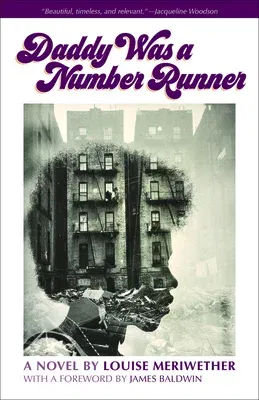Louise Meriwether
(Author)Daddy Was a Number RunnerPaperback, 1 December 2002

Temporarily out of stock
Free Delivery
Cash on Delivery
15 Days
Free Returns
Secure Checkout

Part of Series
Contemporary Classics by Women
Print Length
240 pages
Language
English
Publisher
Feminist Press
Date Published
1 Dec 2002
ISBN-10
1558614427
ISBN-13
9781558614420
Description
Product Details
Author:
Book Format:
Paperback
Country of Origin:
US
Date Published:
1 December 2002
Dimensions:
21.34 x
13.72 x
1.27 cm
ISBN-10:
1558614427
ISBN-13:
9781558614420
Language:
English
Location:
New York, NY
Pages:
240
Publisher:
Weight:
294.83 gm